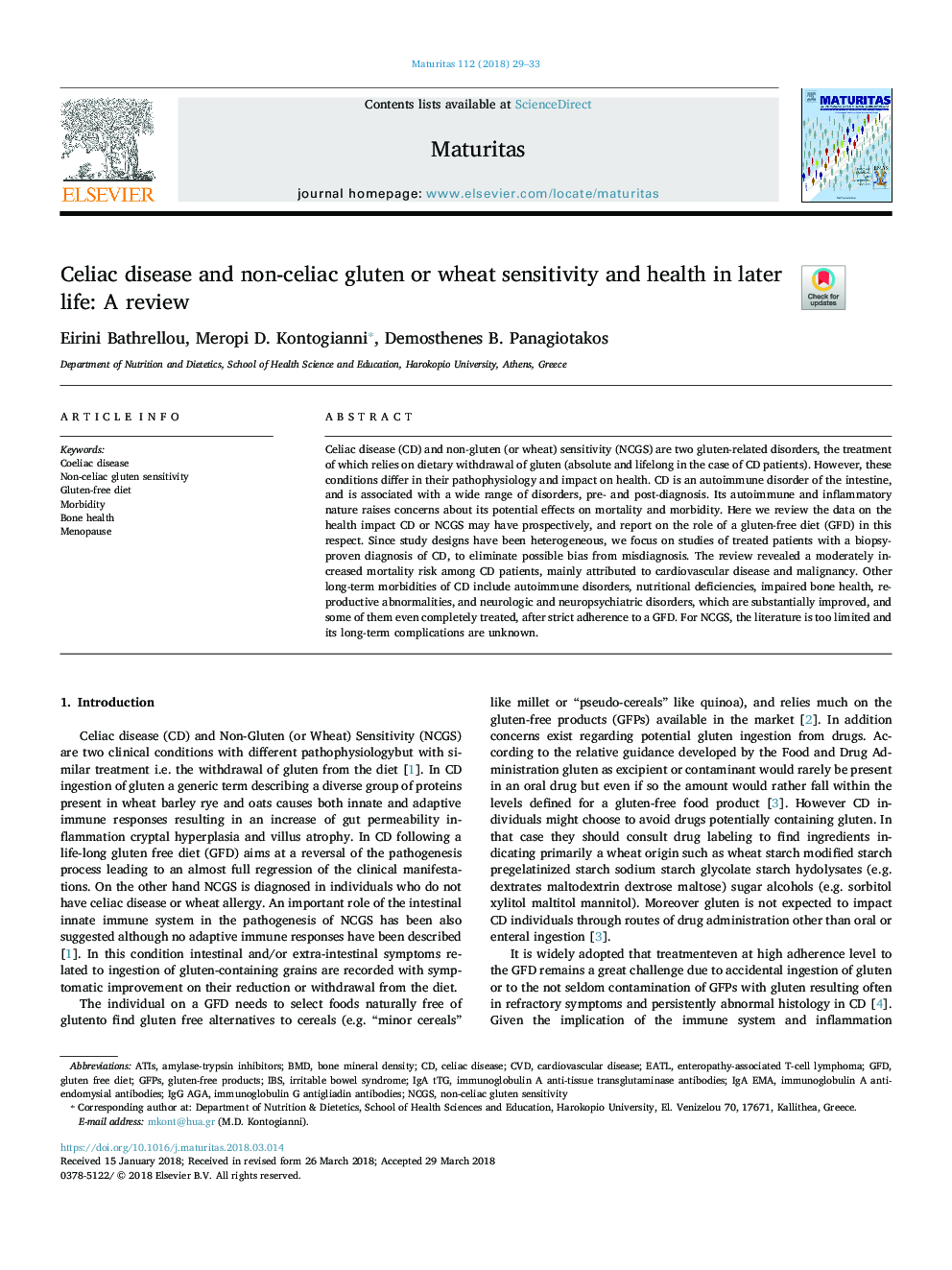| Article ID | Journal | Published Year | Pages | File Type |
|---|---|---|---|---|
| 8283809 | Maturitas | 2018 | 5 Pages |
Abstract
Celiac disease (CD) and non-gluten (or wheat) sensitivity (NCGS) are two gluten-related disorders, the treatment of which relies on dietary withdrawal of gluten (absolute and lifelong in the case of CD patients). However, these conditions differ in their pathophysiology and impact on health. CD is an autoimmune disorder of the intestine, and is associated with a wide range of disorders, pre- and post-diagnosis. Its autoimmune and inflammatory nature raises concerns about its potential effects on mortality and morbidity. Here we review the data on the health impact CD or NCGS may have prospectively, and report on the role of a gluten-free diet (GFD) in this respect. Since study designs have been heterogeneous, we focus on studies of treated patients with a biopsy-proven diagnosis of CD, to eliminate possible bias from misdiagnosis. The review revealed a moderately increased mortality risk among CD patients, mainly attributed to cardiovascular disease and malignancy. Other long-term morbidities of CD include autoimmune disorders, nutritional deficiencies, impaired bone health, reproductive abnormalities, and neurologic and neuropsychiatric disorders, which are substantially improved, and some of them even completely treated, after strict adherence to a GFD. For NCGS, the literature is too limited and its long-term complications are unknown.
Keywords
Related Topics
Life Sciences
Biochemistry, Genetics and Molecular Biology
Ageing
Authors
Eirini Bathrellou, Meropi D. Kontogianni, Demosthenes B. Panagiotakos,
